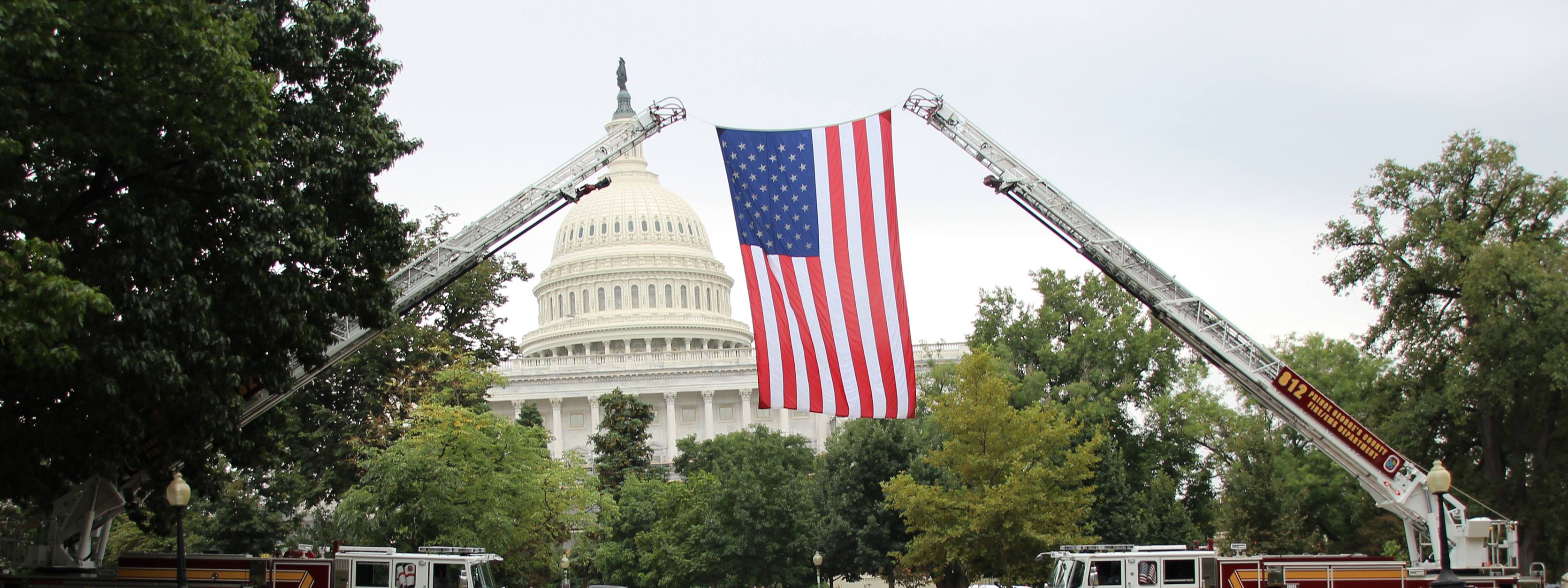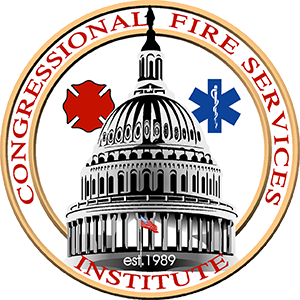Government Funding and COVID Legislative Package Becomes Law

On December 27, 2020, the President signed into law the Consolidated Appropriations Act for fiscal year (FY) 2021 (H.R.133). The bill passed both chambers of Congress last week by significant majorities.
The bill contains $1.4 trillion in FY2021 funding for government agencies and programs, as well as a $900 billion COVID-19 stimulus package.
Throughout the 116th Congress, CFSI and our partner organizations have advocated for the passage of a number of provisions important to the fire and emergency services. Through these efforts, many of our priorities have been included in the omnibus. Overall, provisions relevant to the fire and emergency services include:
- $720 million for the AFG and SAFER programs ($360 million per program). This is an increase from $355 million/program in FY2020.
- Waiver authority was provided for the AFG and SAFER programs. Under the bill text, the Secretary of Homeland Security may provide a number of waivers for the AFG and SAFER programs to get funds to grantees more effectively.
- $49.3 million for the U.S. Fire Administration (USFA). This is an increase from the FY2020 level of $46.8 million.
- Report language accompanying the bill further directs USFA to provide full funding for State Fire Training Grants and the National Fallen Firefighters Memorial.
- Additional report language directs USFA to collect data on suicide in the fire service.
- T-Band is preserved in the omnibus. Language repealing the T-Band auction requirement was included in the omnibus.
- $37.8 million for the National Urban Search and Rescue Response System. This funding level was maintained from FY2020.
- $19 million for the Volunteer Fire Assistance program. This is an increase from $1 million over the FY2020 level.
- The Volunteer Responder Incentive Protection Act is made permanent. This tax benefit allows qualified volunteer firefighters to deduct from their income taxes a portion of benefits they may receive for volunteering.
- $2.5 million for the National Firefighter Registry. This funding will help to support the rollout of this registry.
- $17.1 billion for the Disaster Relief Fund.
- $5.5 million for SIREN Act grants. These awards are given to rural fire and EMS agencies.
- The Portable Fuel Container Safety Act is included in the omnibus. This bill protects consumers by directing the Consumer Product Safety Commission to create a standard requiring certain flame mitigation devices be used on portable fuel containers.
- The Carbon Monoxide Alarms Leading Every Resident To Safety Act, or CO ALERTS Act, is part of the omnibus. This bill will require carbon monoxide alarms to be installed in certain federally assisted housing.
- The Safer Occupancy Furniture Flammability Act, or the SOFFA Act, is included in the omnibus. This bill sets a national furniture flammability standard.
In the COVID-19 stimulus portion of the legislation, provisions that may be of interest include:
- Up to $600 stimulus checks for qualifying individuals.
- Additional small business funding. The bill contains over $284 billion for Paycheck Protection Program loans and also includes $20 billion for targeted Economic Injury Disaster Loan grants.
As the 116th Congress comes to a close and the 117th Congress begins in January, CFSI will continue to promote programs, funding, and other provisions that are of vital importance to the fire and emergency services.
